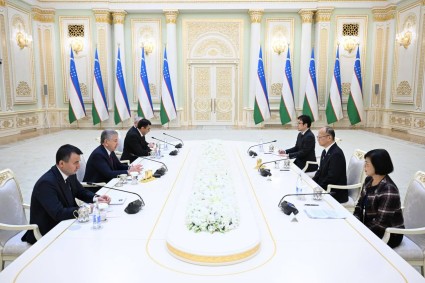The World Bank’s Board of Executive Directors has approved a $800 million financial package in highly concessional loans to support Uzbekistan’s structural reforms, which aim to contribute to further poverty reduction, job creation, private sector growth, and increased competition in strategic economic sectors.
The government’s policy measures, which the World Bank facilitates through this operation, aim to mitigate the impact of energy tariff increases on low-income households; protect women from harassment and violence in the workplace; expand social services for vulnerable groups; enhance competition in the telecommunications, agriculture, and energy sectors, as well as expand Uzbekistan’s international trade.
The World Bank has provided $800 million in highly concessional loans for this operation, offering the government low-cost, long-term repayment conditions that are more favorable than those available in international financial markets. As a result, Uzbekistan will benefit from reduced debt servicing costs, allowing the government to allocate more budget resources to its social and economic priorities.
The World Bank’s support will help the government implement urgent policy measures across a range of strategic sectors, including:
1. Social Protection: Increasing compensation payments to low-income households to offset rising electricity, heating, and gas tariffs, raising annual cash transfers from UZS 270,000 per family to UZS 1,000,000.
2. Increasing Economic Opportunities for Women: Adopting legislation and mechanisms to protect women from sexual harassment and violence in the workplace, as well as prohibiting employers from refusing to hire, reducing wages, or dismissing women due to pregnancy or having children.
3. Expanding Access to the Social Services: Creating conditions to open the market for delivering social services to vulnerable groups through accredited private sector and other non-governmental providers.
4. State-Owned Enterprise (SOE) Reform: Establishing a National Investment Fund (NIF) to manage and privatize SOEs more effectively, as well as creating an independent telecommunications regulator to limit state dominance in Uzbekistan’s broadband and mobile services markets and to attract private investment into the sector.
5. Agriculture: Introducing agricultural risk insurance, as well as advancing cotton sector reforms. The latter includes the adoption of a more flexible mechanism for setting farmgate cotton prices and enabling textile enterprises to purchase raw cotton directly from any farmer.
6. Trade Liberalization: Accelerating Uzbekistan’s WTO accession and expanding international trade by streamlining export procedures—abolishing export permits for certain goods. Additional measures also include eliminating exclusive rights granted to specific actors in energy, oil and gas, chemical, agricultural, and other sectors that restrict competition
7. Power Sector: Implementing measures to open the electricity distribution sector to private participation and allow independent renewable power producers to sell electricity directly to consumers. These steps will help scale up renewable power generation and attract greater investment in the power grid.
8. Energy Efficiency: Introducing additional incentives to reduce GHG emissions in energy-intensive industries and measures to improve energy efficiency. These include establishing a National Energy Efficiency Agency, tasked with attracting private investment in energy-saving initiatives, and introducing financial incentives for solar power, heat pumps, and energy-efficient building retrofits.
9. Green Public Procurement: Integrating environmental criteria into public procurement to prioritize purchasing of environmentally friendly goods and services when using budget funds.
Learn more about the World Bank’s operations in Uzbekistan.










